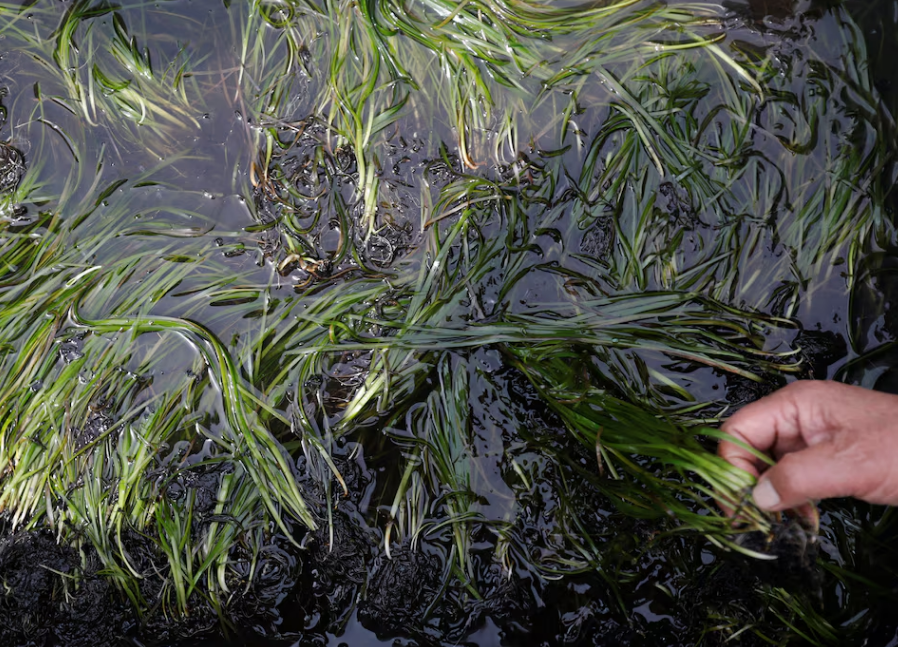YOKOHAMA, Japan -- On a recent Saturday, some 100 volunteers gathered on a popular beach in the Japanese port city of Yokohama, wading in the shallows to plant strands of light-green eelgrass on the seabed.
What began as a project to restore the natural ecosystem along the coast of the city just south of Tokyo has taken on national importance: helping fight climate change as Japan aims to achieve carbon neutrality by 2050.
Japan, the world's fifth-largest emitter of greenhouse gases, covers a surface area smaller than California but has some of the longest coastlines in the world. That makes marine vegetation a viable method of capturing at least a fraction of the carbon dioxide it produces, scientists say.
"Over the course of this work, we've come to understand that it can absorb and store the carbon that causes climate change," said Keita Furukawa, marine scientist at the Association for Shore Environment Creation.
In a world first, Japan's most recent annual Greenhouse Gas Inventory, provided to the United Nations Framework Convention on Climate Change (UNFCCC) this month, factored the carbon absorbed by seagrass and seaweed beds into its calculations.
The Ministry of the Environment estimates that in fiscal year 2022, that amount of blue carbon – carbon that is naturally stored by marine and coastal ecosystems – was roughly 350,000 tons.
While that is just 0.03 percent of the 1.135 billion tons of CO2 equivalent greenhouse gases Japan emitted that year, blue carbon has taken on more importance as the country's forests age, absorbing less carbon dioxide than younger trees.
The amount of greenhouse gases absorbed by forests fell 17 percent over the five-year period to 2022, government data shows, and Japan has said it would make efforts on both land and in the sea to capture more carbon.
"If eelgrass were to grow in every shallow area of the sea it's possible for it to grow, I think it could absorb perhaps 10 or 20 percent of human emissions," Furukawa said.





















































